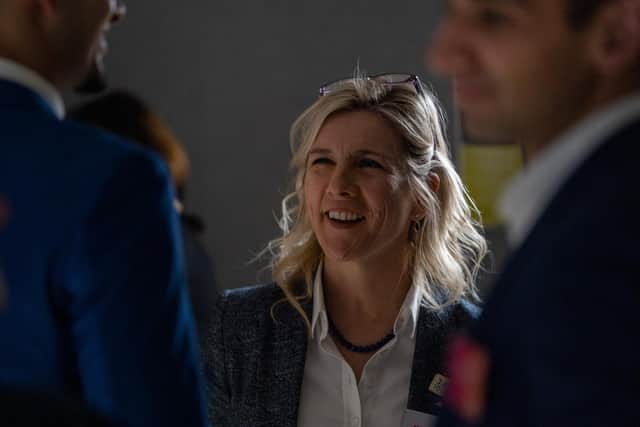Practical education can transform young people’s lives and boost productivity - Sharon Davies
Among several recommendations, the report has challenged the “knowledge-rich” theory that has so often prevailed in the UK’s debate on education, while opportunities to experience more practical, applied forms of learning have become increasingly limited, despite the fact many children thrive through learning this way.
When invited to contribute to the report, Young Enterprise told the committee we have long championed a move towards a different approach, one that recognises the pivotal role connecting classroom learning with real-world experiences can have in preparing young people effectively with the skills, confidence and mindset needed for the future.
Advertisement
Hide AdAdvertisement
Hide AdWhile the committee’s recommendations for reducing the burden of exams and introducing more non-exam assessments are a step in the right direction, it is also crucial to prioritise a curriculum that fosters adaptability, critical thinking, and digital skills, alongside traditional academic knowledge. As critical as academic attainment is, on its own, it is not enough.


The world of work is fast-changing, and the next generation of workers – Generations Z and Alpha – are looking for roles that enable them to explore and develop a range of skill sets rather than a job focused on a particular skill. We must also do more to address the growing gap between what children are being taught and the skills employers require. A staggering 79 per cent of teachers in a Teach First survey answered that today’s pupils are less prepared for the world of work compared to previous years.
Meanwhile, new research from the Education Policy Institute shows that the attainment gap between disadvantaged pupils and their peers has grown since 2019. This is particularly the case for persistently disadvantaged pupils.
These findings reinforce the need for a real and urgent re-think of how education is delivered to engage all young people. As it stands, we know that there is inconsistent access to practical and real-world-based learning – applied learning – across schools. While educational reform may have a timeline of five to ten years, this generation of young people needs action that recognises and responds to the unique set of circumstances they are facing now. An educational approach that can encourage young people to translate knowledge into action and develop skills that better equip them to deal with the challenges ahead.
Advertisement
Hide AdAdvertisement
Hide AdThis generation is growing up in one of the most volatile, uncertain and complex times in history. So, the imperative to ensure they are equipped with the skills, confidence and mindset, not only to navigate but actually thrive in ambiguity, has never been greater.
If we’re serious about closing advantage gaps, then education is the key method by which to achieve this. How we go about designing fit-for-purpose education is imperative not only for the future of this current generation of young people but for the future productivity of the UK economy.
Sharon Davies is CEO of Young Enterprise.
Comment Guidelines
National World encourages reader discussion on our stories. User feedback, insights and back-and-forth exchanges add a rich layer of context to reporting. Please review our Community Guidelines before commenting.